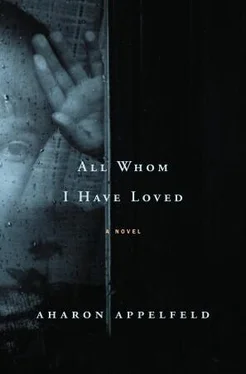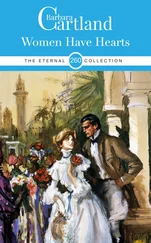Father did not argue and was not angry. He ordered breakfast, and we sat and ate as if we weren't in a hurry to leave. The coffee was delicious, and Father ordered another pot. The owner of the hotel, a Jew of the old kind and involved in everything going on in the region, had of course heard of Father and immediately called his wife and daughters to see the marvel. Father, initially embarrassed, eventually responded to the owner's questions, telling him at length that he had only recently returned from Bucharest, where he had held a large exhibition, and that he was now on his way to Czernowitz. The Jew, for his part, told Father that anti-Semitism in this region was on the rise, and that now Jews were being beaten in the streets in broad daylight.
“And what do the Jews do?” Father asked.
“What can they do?”
When we reached the station it was already noon. Father went to the ticket office and asked about the times of the trains, and on the spot he decided that it was best to travel now to Campulung and rest a bit, before the vacationers came. I had once spent a summer vacation with Mother in Campulung, and I remembered the long boulevards and the slender poplars whose shadows trembled on the sidewalks.
We left on the first train, but just as the train pulled out of Storozynetz it started to rain. At first Father was happy, but as the day went on, he grew more withdrawn, and he buried himself in his coat. We arrived in Campulung at night. It was raining heavily there, too, and we huddled near the snack counter together with the station workers. The food there did not seem fresh, and we went outside to wait for a wagon. Everything that had happened to us since we left Bucharest now seemed like one nightmare that had become entwined with another nightmare. Wagons passed us, but the drivers didn't stop. Finally a wagon stopped and we got into it.
“Take us to a hotel,” called Father.
“Which one?”
“Doesn't matter.”
And that's how we came to the Hotel Bukovina. The woman who owned it — a woman who was not young — welcomed us politely and immediately served us coffee and rolls. The beds were comfortable, and we slept late. In the morning we sat next to the window and ate breakfast. Suddenly I saw how past years had remained frozen here, inside the tall vases on the sideboards. Father said, “It's a hotel like those from the old days; hotels like this are vanishing.”
The rains did not cease. Father's plans to take walks and show me all the wonders of the place were out of the question.
“It's a good time to sleep; sleep is no less pleasant than staying awake. A man who sleeps a week rises like new.” The woman who owned the hotel spoke genially, but her voice was not pleasant. I felt that she was trying to persuade Father. He listened to her and asked some detailed questions, while she elaborated: “A week of sleep is a real adventure.”
“Adventure?” wondered Father.
“Correct.” The proprietress held fast to her opinion.
The days are gray and crawl by. Father drinks and plays poker, and the owner of the hotel has given me an old pack of cards. I read Jules Verne avidly and sketch geometric forms. Every few hours Father goes over to the window and says, “I see no end to it.”
“What class are you in, Paul?” the proprietress asks me.
“I don't go to school.”
“Why not?”
“I've got asthma.”
“Children with asthma don't go to school?”
“I'm exempted.”
“And don't you want to go to school?”
“No.”
During the past two years I've been breathing naturally and haven't ever choked. And to tell the truth, even before this, my breathing didn't trouble me. My exemption from school is an achievement in which Father takes pride. “Paul doesn't go to school; I've saved him from the herd,” he tells everyone. Lately it seems that Father's animosity toward school has grown. “For the sake of a little math, it's hardly worth spoiling one's entire life. To go to school is like being part of a herd; there are leaders and there are serfs. Instead of a serf-child, I have a child with a questioning heart.” Now Father no longer says, “Test Paul on his math.” He says, “Every day outside the school walls is freedom from prison.”
Father drinks continuously, and his once handsome face is now ugly — red as a beet and blotchy. On a few occasions he has warned his gaming companions against whispering together and conspiring against him. These “companions” seem like a bunch of swindlers to me. Father loses, and I can see that his patience is running out. I'm afraid that soon he's going to jump up and hit one of them. But as it turns out, the danger comes from another quarter, in the form of a tall, blond Croatian woman who has landed here. Father, it seems, has captured her fancy, and everything he says amuses her. I've already seen women like this in Czernowitz. They laugh at everything and say, “How incredibly amusing.” I am sure that Father will find her revolting, but he doesn't. He sits on the couch and tells her in great detail about his journey to Bucharest, about the exhibition, and about the anti-Semites.
“You're a Jew?” she says, wondering.
“Correct.”
“You don't look Jewish.”
“What's wrong with being Jewish?”
“There's nothing wrong; it's just dangerous.”
Father likes the blonde's answer, and he says, “You're right about that.”
“I'm always right.”
Father laughs and says, “Apparently!”
Then she disappears. The days continue dark and moist, the stoves roaring day and night. Most of the time I sit in the music room, reading Jules Verne and doodling geometrical shapes. When we were near the monastery, my imagination ran free; here I can't imagine a thing. My sleep is heavy and blocked, and I don't feel connected to anyone.
One night I awake and don't see Father in his bed. I am seized with fear and want to cry out. I climb down and feel his bed — it is empty and cold. The salon and the music room are also dark. I go back to bed and wait for Father to return. Only toward morning does he come in on tiptoes and get into his bed.
I know exactly what happened.
We eat breakfast extremely late. Father's face is unshaven and his eyes are red and puffy. He carelessly shovels hunks of bread into his mouth.
In the afternoon he plays cards and loses again. Losing makes him angry, but he neither raises his voice nor lifts his hand. Later, the blonde enters and he is irritatingly friendly when he speaks to her, complimenting her and calling her “my dear.”
Every night Father disappears, and in the morning he returns on tiptoes, and each time he seems more wretched to me — the clumsy gestures of the blonde already cling to him. Sensitive to the slightest physical nuance, he has now acquired her ugly movements; he even swallows his words when he speaks. If only it would stop raining, I would drag him outside.
It's already the end of May, and there's no sign of light. After dinner, Father sits on the couch and, ticking off on his fingers, counts the cities in which he's had exhibitions. It's not his usual behavior or his usual voice. The blonde sits next to him and laughs at everything that comes out of his mouth, but the others stare at him with the look of swindlers. Now it's clear to me: they're shaking him down, and at night the blonde steals from his pockets. I've already heard him mutter: “She's been stealing again!” Father is like a caged lion, not beaten and not broken, only growling and cursing himself.
The days pass, and Father seems to change before my very eyes: his cheeks become sunken and an unpleasant ruddiness blooms on them. Sometimes I sense that I'm a burden, that I'm in his way, and I'd like to run away, go anyplace my legs will carry me. Father wallows in his drink, in poker games, and in keeping the blonde entertained. He is barely aware of my existence. Sometimes he'll rouse himself and say, “Paul, why don't you go to sleep?” or “Why don't you read?” I know that these are not heartfelt words; he doesn't really mean them. He's mired in the blonde's room, and it's almost three in the afternoon before he surfaces. The hotel's proprietress looks after me, serves me meals, and asks me questions. Once again, the question of school and my asthma arises.
Читать дальше












